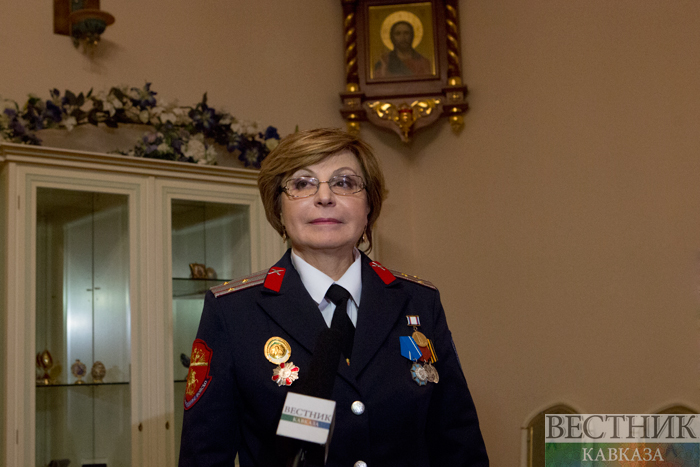The role of the Cossacks in Russian history cannot be overestimated. The revival of the Cossack movement began in the late 1980s. At first, the historical-cultural component prevailed in the movement, but by the early 1990s the movement began to be politicized. Cossack organizations and unions were being established intensively in small towns and big cities. Today the Cossacks, with their centuries-old traditions, are a harmonious part of the Russian social system, including the education system.
Professor Valentina Ivanova, Rector of the Razumovsky Moscow State University of Technology and Management (First Cossack University), member of the Council for the Cossacks under the President of the Russian Federation, Doctor of Economics, told Vestnik Kavkaza that the Cossack component is actively introduced into the education system: “This is the history of the Cossacks. We consider all the traditions of the Cossacks from ancient times to the present. There is a process of the creation of Cossack self-government among the students, we have the youth Cossack organization ‘Cossack Change.’ Along with the educational process, there is the formation of leadership qualities through the system of ataman governance. It's our way of working with young people,” Ivanova explains.

According to the rector, in the first half of the day, students are studying according to a certain all-Russian standard. And the second part of the day is entirely devoted to Cossack traditions, Cossack skills: “Training with weapons, dressage, fancy riding are represented in our university."
"We have a university chaplain, Father Timothy, we have 18 regional Cossack institutions, subjects, and each institute has a spiritual and educational center of Cyril and Methodius, there is a regional Cossack confessor in each institute. So that Orthodoxy has become almost the life of our Cossack students.”
"4500 Cossacks are now studying at our university and 39000 at all the regional institutions. We still have room to grow, recruit Cossacks and bring them to the higher education system… The Cossacks were not only mastering Siberia and the Far East, which is practically our modern history, they were also farmers and grain refiners, and they introduced new technologies, including the processing of agricultural products. Therefore, it was all united with the Russian state from the western borders to the Far East and the Pacific Ocean,” Valentina Ivanova stated.






